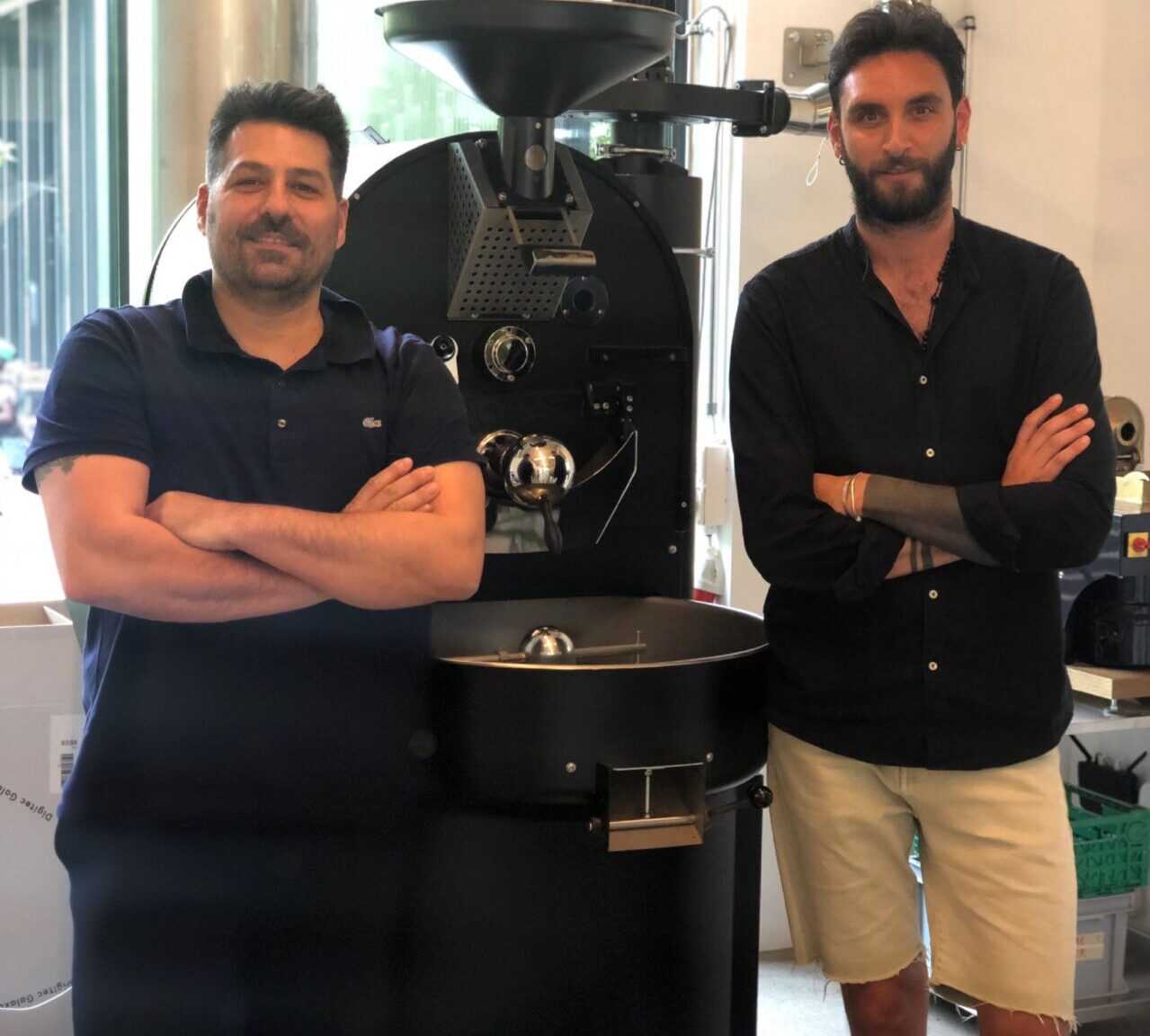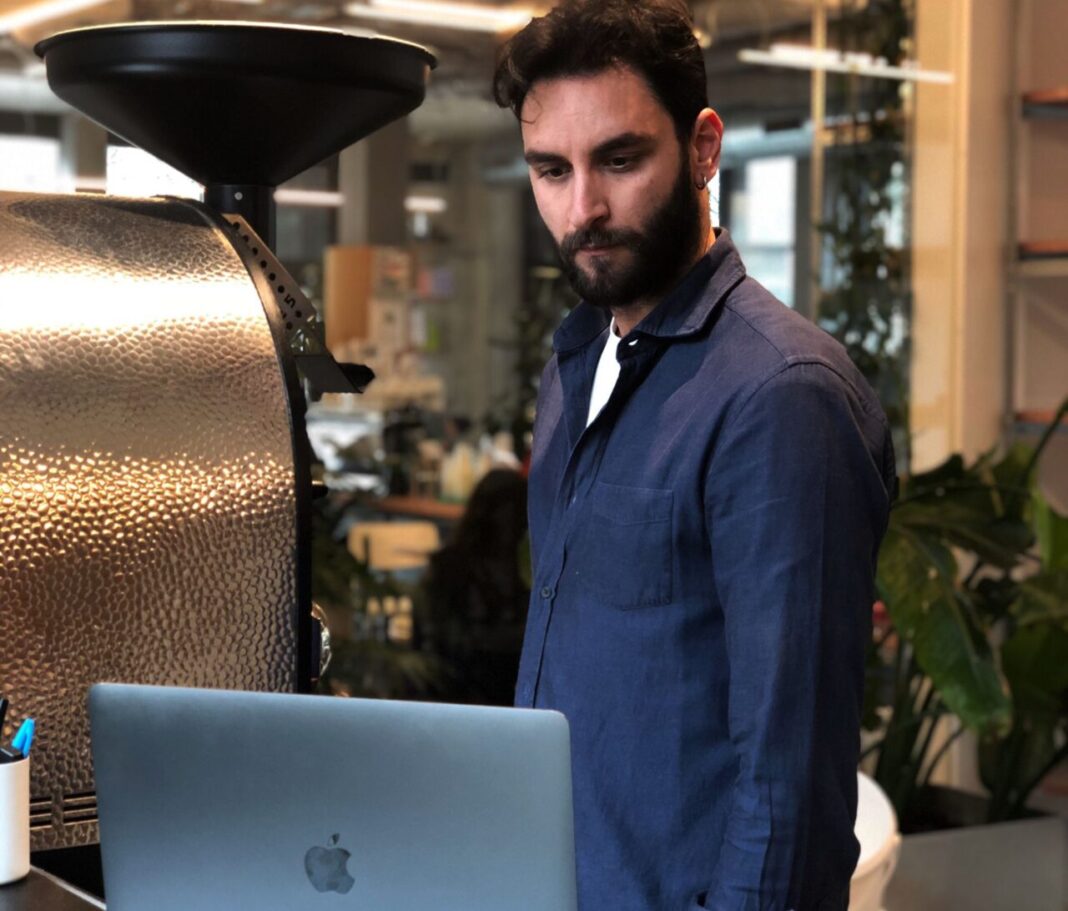MILAN – After leaving Italy to travel the world and become a professional, first behind the counter and then in front of a roaster, Alfonso Pepe has not stopped testing himself and devoting himself to speciality coffee (a real conversion for a Neapolitan), moving to Zurich, his latest destination, to work at Miro Coffee for the two owners David and Dani Sanchez: a place where he was finally able to find a home, learn a new trade, developing a new skill of roasting, under the wing of an absolute master, Davide Cobelli.
Alfonso Pepe, tell us your story in the world of professional coffee?
“My first experience was when I was 13 years old, when I worked for the local bar and delivered coffee to the shops on a tray. That was before I moved behind the counter, where I stayed until I was 25 in Naples. ”
Then the adventure abroad in London, for three years, without knowing the language, first in a hotel and then in a specialty coffee shop: “Here a world revealed itself to me: I got to know latte art, I saw coffee being weighed, there was talk of fruity notes, of acidity, which for me, a Neapolitan who still put sugar in the cup, was a shock. At that time I discovered another job completely. ”
Three years at Sacred and then at Tymbeyard, the same speciality where Jessica Giacetti worked (she currently works as a quality assurance specialist at Algrano) Pepe undoubtedly learned on the job, alongside real professionals. Then another move to Ibiza, to follow the opening of a coffee shop. Then he flew to Australia to make another professional leap, in a café near the beach that was based more on quantity (they made almost 10 kilos of cappuccino a day, until 4 pm).
Only once in New York did he work in a speciality coffee shop, but the bureaucracy made it difficult to stay. Pepe says: “Luckily, at that time, my cousin Ivan Pepe was working as a quality manager in a speciality coffee shop in Zurich and was looking for trained staff. I was immediately fascinated by the project and took off.”
Pepe: “That’s where I met the roasting company”

“I was an apprentice for a while, and seeing how determined I was, Miro’s owners gave me the chance to train with Davide Cobelli, who was the Italian champion in 2020. He made me reset everything I knew and so I started from scratch: from green, to sensory, to brewing and roasting, we went through every stage. It was an experience that changed me personally and professionally. We’ve built up a relationship of friendship and cooperation.
How do you drink coffee in Switzerland?
“Here in Zurich, a small city where there are already a few other speciality coffee shops, we are doing very well. Consumers finally prefer quality, they are curious about what they drink, they ask the barista for explanations. We are always ready to respond by telling them about the processes behind the cup, also explaining how it is roasted and finally served. It’s still a niche, but speciality coffee is a bit more widespread than in Italy. Certainly here people don’t have problems with costs.
We sell an espresso at the table for between four and six euros, no problem. Oat milk cappuccinos from 6.5 to 8 francs. A bit like spritz. And the customers appreciate the effort for what we do. The bartenders are also good, of course: when they offer the drink, they are able to pass on their knowledge and perceptions in the cup. We create a real taste experience here, guiding the consumer’s palate. You have to be prepared to answer customers’ doubts. Working in speciality requires passion and commitment: when you work at certain levels, you have to have certain skills to enhance the product you are serving.”
And the roasting? Pepe, do you roast to second crack?
Pepe laughs: “No, never. Even my espresso are roasted light to medium. However, we also offer alternative brewing methods, although our target market, is espresso roasts. As far as we know, miro coffee is the only speciality coffee roastery present on an airline: we travel with Swiss, which chose us because they wanted to work with a local, small company that cares about sustainability and its raw materials. They sell our coffee in-flight for €4. You don’t see that very often, so it was a nice surprise for us.”
With Mirò, have you also considered producing coffee in capsules? Switzerland is the home of Nespresso after all.
“The Nespresso market here in Switzerland is unbeatable. They count on strong marketing. We like to deal with people who want to discuss other things, freshness, quality, who are prepared for a certain quality in a product. They never ask us about capsules. Of course, should we have to adapt to the market one day: we will think of something that works with the quality that we produce. For now, we continue to follow our values linked to the speciality concept. Our priority lies elsewhere than making a quick buck.”
Pepe, where does the Swiss coffee market export most? Where abroad? Also to Italy?
“What penalises us is that Switzerland is not really part of the European Union, so it is difficult to manage at customs level: there are higher costs, so it becomes burdensome to sustain expenses if you do not export large quantities. We’ve also had requests from Turin, Spain and the UK, but the problem is the logistics. It’s stressful to follow the whole process and the hiccups. We are trying to find a way to improve it.”
And espresso? How is it perceived there?
“People drink cappuccino more than espresso. But the espresso lover, doppio, is not uncommon. Especially those who want to taste it. There are many filters above all: customers prefer drinks with milk or long ones.”
Do you have direct contact with farmers?
“Yes. We have direct contacts with Sancoffee in Brazil and then some small producers in Colombia, whom I met during a trip to the plantation organised by a guy who is in charge of offering this kind of experience originally and also of the shipments: I formed a relationship with him.

The coffee we offer at Mirò: an espresso line, Honduras, Peru, Brazil and Colombia; then the filter line which is more seasonal, Ethiopia, Kenya, Colombia, Nicaragua, Guatemala. We don’t miss a thing. I have total freedom.”
Are you having difficulties with raw material supplies these days, and also with rising utility prices?
“We have also had some difficulties. Covid pandemic has created a problem of labour shortages in the fields for harvesting. In any case, we know that we are supporting farmers and we don’t make a fuss: we communicate this openly to our customers and act accordingly. They know that we work with the farmers and help them as much as we can.
When we buy large quantities, there is also the possibility to lock in the price. We have solidarity between all the actors in the chain. But it is inevitable to develop a certain sensitivity when you have lived in direct contact with farmers who make immense sacrifices to live in semi poverty. For them it’s survival: it touches you on a personal level to witness those conditions. It makes you think a lot about not wasting espresso. And this has to be communicated to the end consumer, so they can appreciate coffee naturally, without sugar.”
Pepe, what machines do you use at Mirò?
“We use La Linea La Marzocco KB90 with three Mahlkönig E65 GbW and a PuqPress to Tamp. Our filter coffee setup is a double Marco SP9 setup with Mahlkönig EK43 grinders. Our team of baristi also hand-brew on Fellow Equipment, and we run a speciality decaf, a house coffee with is from SanCoffee and then for the second option of espresso: a total of 5 grinders.
We roast everything on a 5 kg Probat conduction roaster. For our purposes this is the best choice. You see, our main target market is for espresso. You would probably achieve easier results for filters with convection roaster roaster. However, our customers really like our style, which is focuses on full-body and sweet cups, without compromising on the fruit and acidity in the cup. After a lot of roasts, we can confidently say, that we mastered roast profiling on a Probat for filter coffee.”
Pepe, what are your plans in the future? Staying in Switzerland, returning to Italy, continuing as a roaster or experimenting with another role in the chain?
“I’m definitely happy here at the moment. Returning to Italy after travelling so much is difficult. Still getting used to the mentality at home – it is intolerable. I’d like to compete in the roasting championships and then become a well-known figure in the industry. What makes me feel good is when people appreciate the coffee you make.”


















